8. Richard Pryor in Blue Collar (1978)
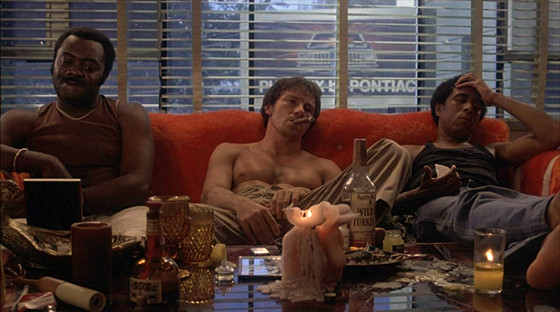
Lee Daniels’ directed biopic Richard Pryor: Is It Something I Said?, starred by Mike Epps in the role of the legendary comedian, is yet to be released, but it would be remiss if it didn’t mention the hard time Hollywood had figuring out how to use this celebrated stand-up comic.
Paul Sharader’s intriguing crime drama Blue Collar cracked the case, asking Pryor to dial back his energy to fit in the movie’s ambitions as a social statement – when three hard-working mechanics get the idea to take some money from their union, they end up getting more than they bargained for and uncovering a case of corruption.
Working alongside Harvey Keitel and Yaphet Kotto, Pryor builds a believable everyman performance, and highlights the themes of the movie with the ability of a brilliant performer.
Other times he went dramatic: Lost Highway (David Lynch, 1997)
7. Robin Williams in Good Will Hunting (1997)
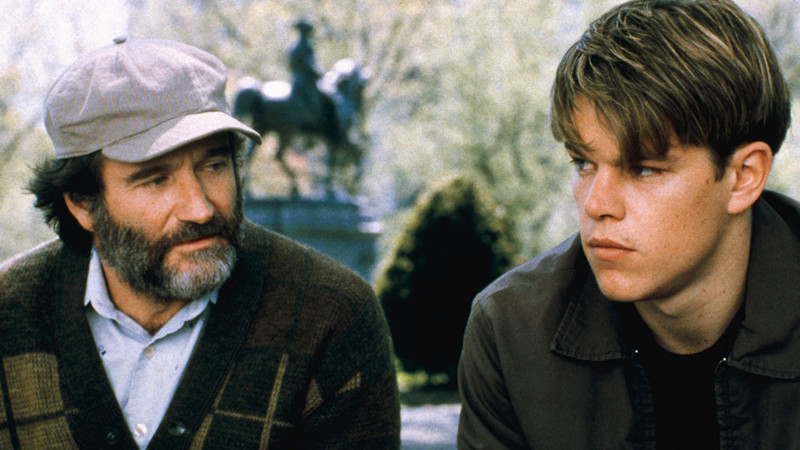
It was not so rare for Williams to take on dramatic roles, especially later in his career, but his comic persona is so prominent in pop culture, especially in the US, that he was still overtly seen as a comic actor. Nominated for the Academy Awards four times in his career, he was eventually picked as the winner for his supporting turn opposite Matt Damon in Gus Van Sant’s Good Will Hunting.
It’s indeed the pinnacle of his dramatic ventures, putting his incredible sensibility and domain of the scene around him to good use as the mentor to Matt Damon’s rebellious genius.
Williams now-famous struggle with depression and alcoholism gave his dramatic characters this rich, lived-in aspect – they are beautiful performances, without exceptions, showing a kind of pain and understanding that could only come from a tormented soul.
Other times he went dramatic: Dead Poets Society (Peter Weir, 1989); Awakenings (Penny Marshall, 1990); The Fisher King (Terry Gilliam, 1991); Being Human (Bill Forsyth, 1994); What Dreams May Come (Vincent Ward, 1998); Jakob the Liar (Peter Kassovitz, 1999); Bicentennial Man (Chris Columbus, 1999); August Rush (Kristen Sheridan, 2007); The Face of Love (Arie Posin, 2013); Boulevard (Dito Montiel, 2014)
6. Sarah Silverman in I Smile Back (2015)
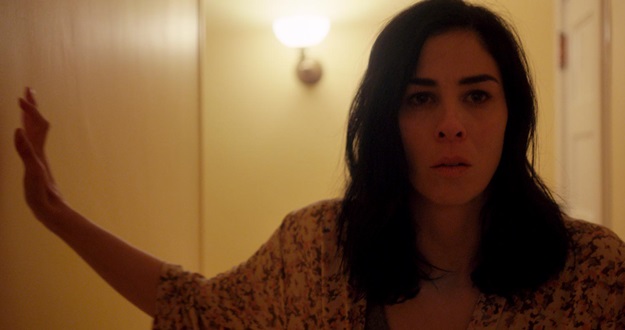
Silverman’s committed performance as a depressed, addicted mom in I Smile Back earned her universally rave reviews (though the movie itself was dividing to say the least), and a SAG Awards nomination. Most of them highlighted the fact that Silverman pulls the viewer down the endless black abyss along with her character, who sees her family falls apart around her lengthy list of addictions and patterns of “bad behavior”.
Always open about her own struggles with depression, Silverman approaches I Smile Back deftly, avoiding the pitfalls of other “nakedly expressive” performances and building her character slowly and ably with the script.
She has taken a few dramatic roles before, although she did so in remarkably smaller parts – she’s specially good in a recurring role in Showtime’s Masters of Sex. You can bet I Smile Back will open a host of new opportunities for the actress, though.
Other times she went dramatic: Take This Waltz (Sarah Polley, 2011)
5. Peter Sellers in Being There (1979)
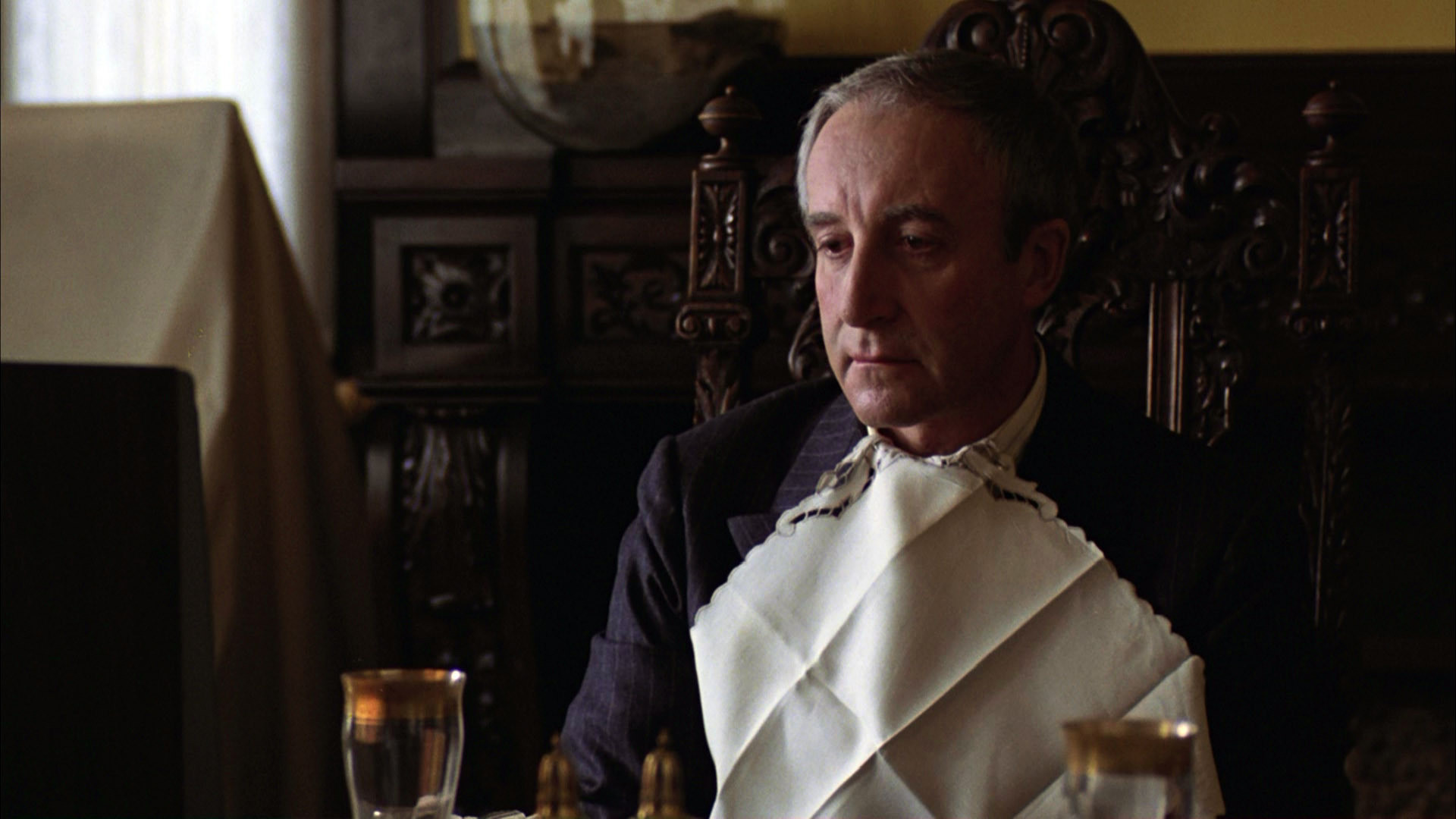
Being There lives and dies for Peter Sellers’ portrayal of Chance, a simple-minded gardener whose weird obsession with weather patterns get confused as political wisdom by a powerful businessman in Washington, D.C.
A film by director Hal Ashby (Harold and Maude), Being There is a savvy parody of Jimmy Carter-era American politics, but it’s Sellers’ way of disappearing into the role that makes it truly remarkable. His notes of sweetness and weirdness give the movie more layers for the viewer to explore, and a stunning humanity that’s missing in most ambitious political parodies.
Being There marked the second Oscar nomination of the now-deceased Sellers, but he never won one, which goes to show that comic actors are underestimated by Hollywood even when they do dramatic roles.
Other times he went dramatic: Lolita (Stanley Kubrick, 1962)
4. Jim Carrey in The Truman Show (1998)
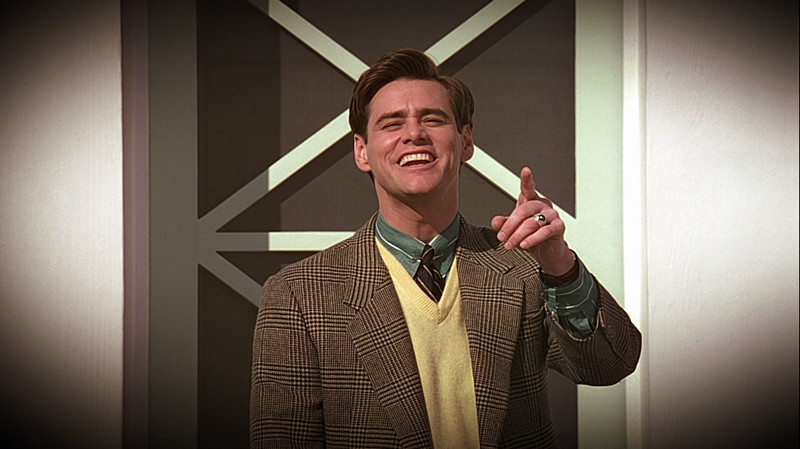
Carrey’s status as one of the most revoltingly snubbed actors in Oscar history started to build up after his striking performance in The Truman Show, Peter Weir’s brilliant version of Andrew Niccol’s screenplay about a common man who starts to suspect his whole life has been part of a reality show, with his “neighbors” and “friends” played by actors.
As it was the first time he broke the mold of his broad comic offerings, The Truman Show left viewers stunned by his performance, built on some comic details of Truman’s personality but infused with undeniable soul and understanding of this extremely curious and unlikely story.
He was left out of the Oscar race that year, to many critics and viewers dismay, and the same thing happened the next year, when he was a strong contender for his turn in Man on the Moon, and in 2005, for Eternal Sunshine of a Spotless Mind.
Other times he went dramatic: Man on the Moon (Milos Forman, 1999); The Majestic (Frank Darabont, 2001); Eternal Sunshine of the Spotless Mind (Michel Gondry, 2004); The Number 23 (Joel Schumacher, 2007); I Love You Phillip Morris (Glenn Ficarra, John Requa, 2009)
3. Mary Tyler Moore in Ordinary People (1980)
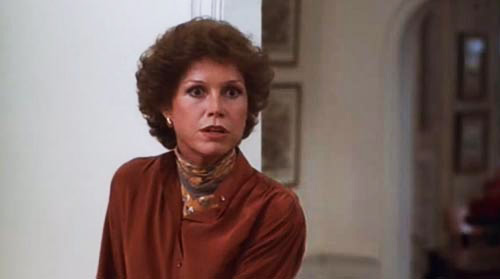
One of only six Oscar-nominated performances in our list, Mary Tyler Moore’s turn in Robert Redford’s Ordinary People is so powerful it becomes the anchor of a film tremendously well-acted, with an ensemble that includes Donald Sutherland, Judd Hirsch, Timothy Hutton and M. Emmet Walsh.
The story of an affluent family dealing with the loss of a young son sees Moore playing against her lovably spunky persona from her well-known series in the 70s as a bitter mother refusing to reckon with her son’s death. She goes all the way down with the spectator as she explores the depths of a grieving mother’s anger and disappointment, delivering what ends up being the most uncompromisingly dark turn in the whole movie.
Hutton and director Redford scored a win on that year’s Academy Awards, but Moore was left with nothing, even though she won the Golden Globe for the performance. She has very rarely gone dramatic in theatrical releases ever since – she played a few weightier roles in TV movies.
Other times she went dramatic: Six Weeks (Tony Bill, 1982); Just Between Friends (Allan Burns, 1986)
2. Bill Murray in Lost in Translation (2003)
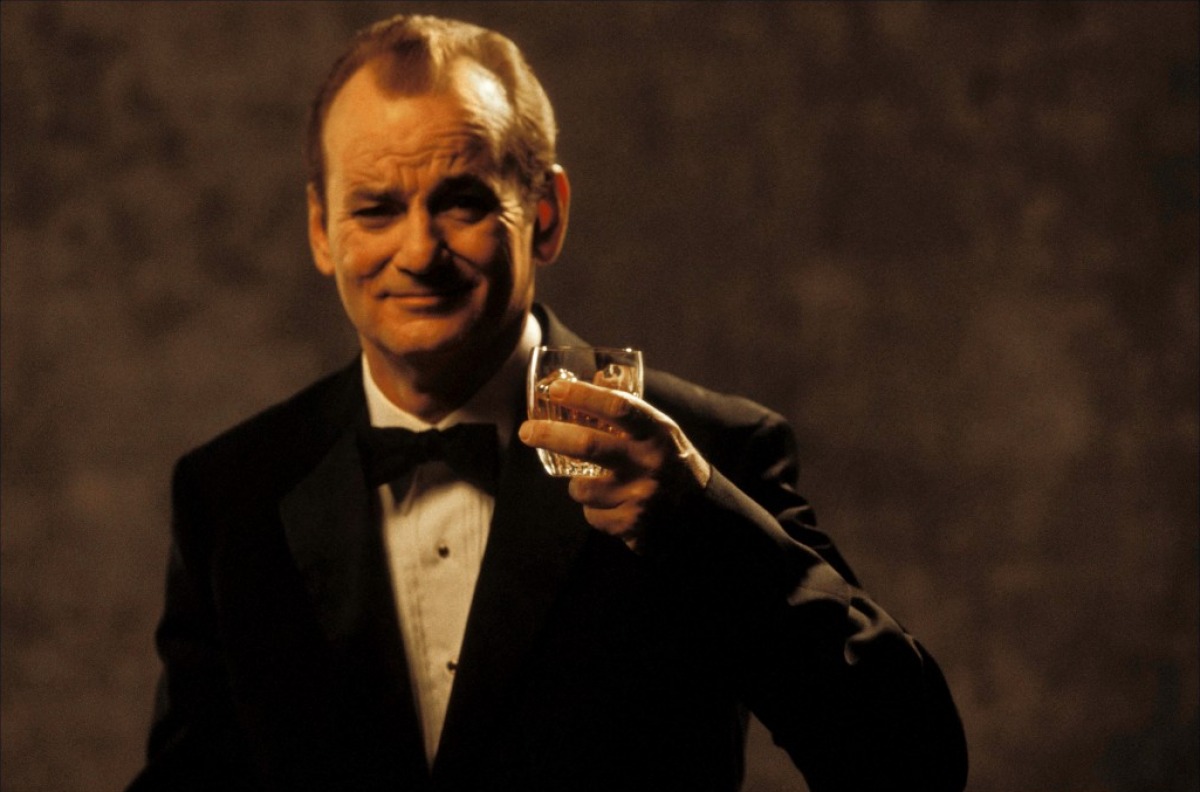
Sofia Coppola’s Lost in Translation has its theoretical center in Scarlett Johansson, playing a neglected young woman who winds up in Tokyo a confusing city if ever there was one, and encounters a faded movie star struggling with similar feelings of melancholy and “emptiness”.
The movie star is portrayed by Bill Murray, though, and Coppola’s camera seems as fascinated by his performance as the viewers arguably are – dropping the ironic roles that gave him fame, Murray’s minimalist turn not only fits the movie perfectly, but molds and transforms it around him and his riveting portrayal of being lost not only in a city, but in life.
Murray had taken more dramatic roles as the year went by, and the reviews for his performances on these movies were consistently great, so maybe he’s still got an Oscar-winning performance inside him. Please, make it happen.
Other times he went dramatic: The Razor’s Edge (John Byrum, 1984); Ed Wood (Tim Burton, 1994); Cradle Will Rock (Tim Robbins, 1999); Broken Flowers (Jim Jarmusch, 2005); The Limits of Control (Jim Jarmusch, 2009); Get Low (Aaron Schneider, 2009); Passion Play (Mitch Glazer, 2010)
1. Whoopi Goldberg in The Color Purple (1985)
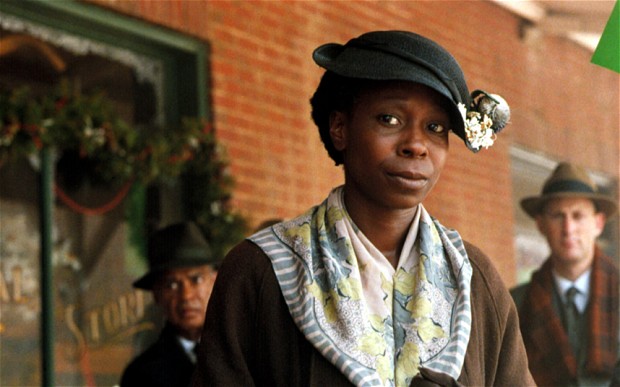
Nominated to 11 Oscars and not winning a single one, The Color Purple is arguably Steven Spileberg’s most underestimated work, a brilliant adaptation of Alice Walker’s important nover about a black Southern woman striving to find her identity after 40 years of abuse from her father and other people in her life.
In her first major motion picture role, Goldberg brought the energy she dedicated to her one-woman Broadway show to the screen and to the composition of the movie’s heroine and her sprawling journey of self-discovery and value.
She plays said journey with comprehension that her character is essentially becoming a whole different person as the years go on, and maybe that’s why her work here is so affecting – it relates to the small bits of human behavior we’re able to recognize, but not always replicate or see it replicated on screen.
It’s a shame that most of Whoopi’s career after this brilliant debut veered towards comedy (and broad comedy at that), but at least we’re left with this masterclass performance by a tremendously talented actress.
Other times she went dramatic: Clara’s Heart (Robert Mulligan, 1988); The Long Walk Home (Richard Pearce, 1990); Serafina! (Darrell Roodt, 1992); Ghosts of Mississippi (Rob Reiner, 1996); The Deep End of the Ocean (Ulu Grosbard, 1999); For Colored Girls (Tyler Perry, 2010)
Author Bio: Caio Coletti is a Brazilian-born journalist, a proud poptimist, and has too many opinions to keep them all to himself.